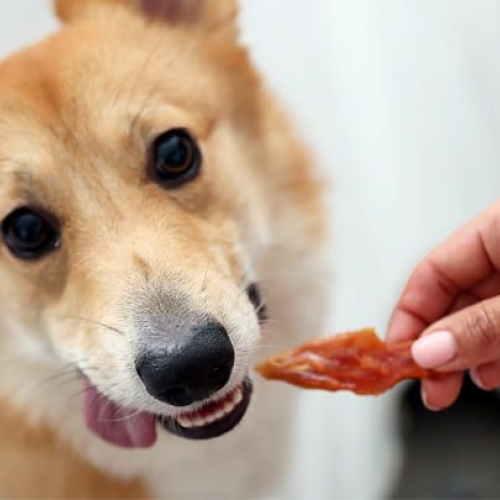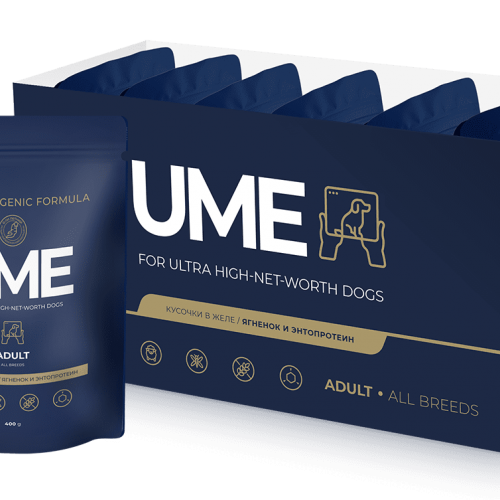The health and longevity of a pet largely depend on properly organized nutrition, its balance in accordance with physiological needs. The wrong approach to the preparation of a diet adversely affects the growth and weight of the pet, affects future offspring, and also leads to the development of the following diseases:
- obesity or metabolic disorders;
- damage to the body by helminths;
- diabetes;
- gastritis;
- stomach ulcer;
- stomatitis;
- enteritis;
- bloating due to excess carbohydrates in the diet.
The dog’s body is different from the body of humans, therefore it is unacceptable to feed your pets with everything that people eat. There are several foods that are familiar to humans, but which can cause serious digestive problems in dogs. For example, it is not recommended to give dogs onions, garlic, avocado, grapes and raisins, persimmons, citrus fruits, peaches, quince and plums, corn, legumes, chocolate, salted, peppered, or pickled foods.
Natural food
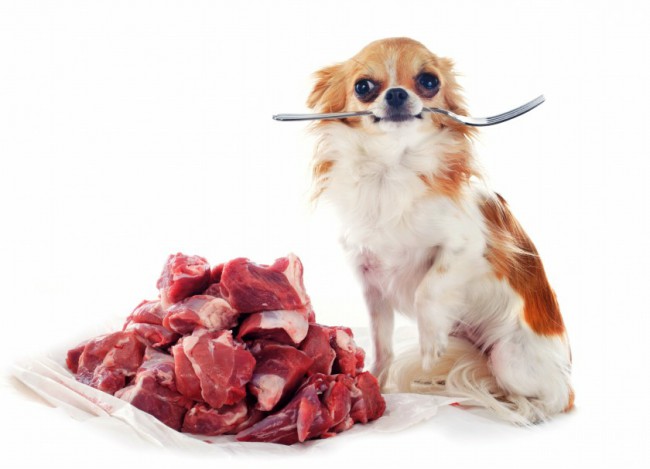
Natural nutrition is generally considered to be everything but commercial feed. But actually, it is not. The natural nutrition of an animal is understood as the “organicity” of food for a given type of animal. Is meat a natural product? Yes, for a dog or cat, but not for a horse. Oats are natural for horses, but not for dogs.
The benefits of natural nutrition:
1. An owner can independently choose quality products for their dog.
2. It becomes possible to completely eliminate unsafe additives, dyes, chemical elements and preservatives from the dog's diet, which will undeniably benefit its body and eliminate the risks of developing various diseases.
3. If a dog turns out to be allergic to a particular food item, it can be quickly removed from the menu and replaced with an alternative product which does not cause such reactions.
4. High-quality nutrition with natural products will ensure the healthy functioning of the digestive tract.
Natural dog food involves the preparation of individual dishes for the pet using high-quality and fresh food. It is unacceptable to cook a week ahead. Food must be fresh and to be served to the animal exclusively in a warm state (not hot, but not cold).
Ready-made feed
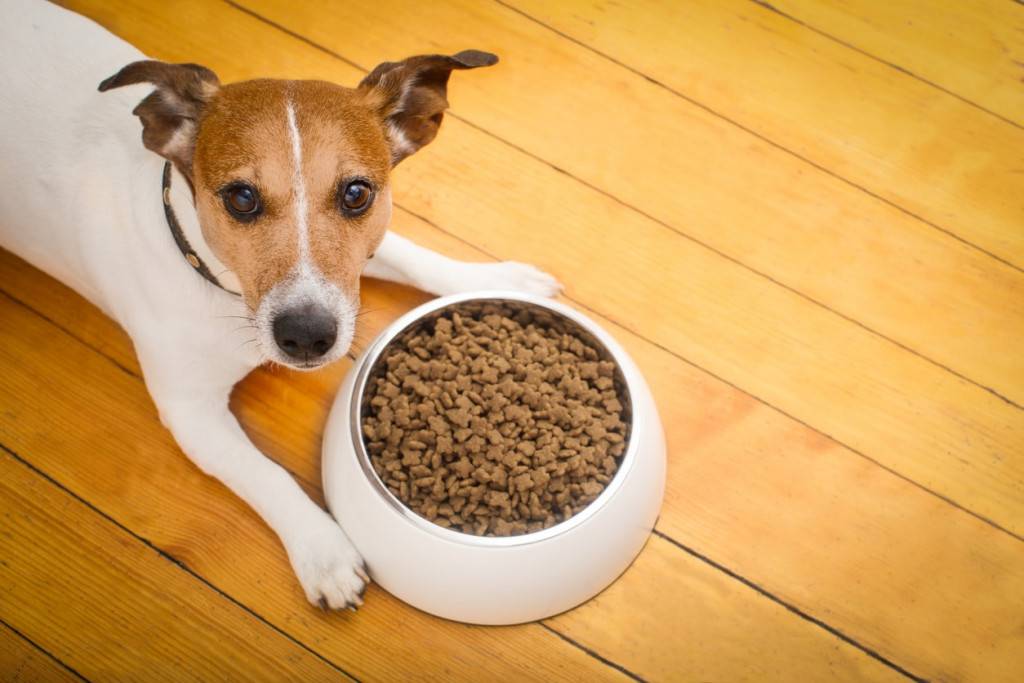
Ready-made industrial feed is a convenient product for feeding pets, which does not require cooking and calculations of the constituent components, as is required by natural feed. There are two types of ready-made dog food: dry food in granules and wet food in cans / pouches with various flavors.
If dry food is chosen for feeding a pet, it is very important that the animal always has access to the water necessary for the absorption of granular food. It is also necessary to take into account the age and size of the dog, carefully study the composition of the food for contraindications specifically for your pet, pay attention to the manufacturing date and the rules for storing the product.
Benefits of prepared foods:
1. Convenience. Compared to other diets, dry dog food is generally cheaper and easier to use. It is enough to pour the food into a bowl and pour water into a second bowl.
2. Dental health. Granulated food can support oral health. Soft plaque (and the bacteria that comes with it) builds up around the gum line and between teeth, causing bad breath. If this plaque is not removed, over time it turns into tartar, which can only be removed by a dentist.
3. Expiry date. The extended shelf life of pellets is also a plus. After opening the package, food can be stored without refrigeration. And dry food poured into a bowl can be left for several days, although it’s best not to do this. The fat contained in the feed, especially in conditions of high humidity, can deteriorate.
Mix feeding
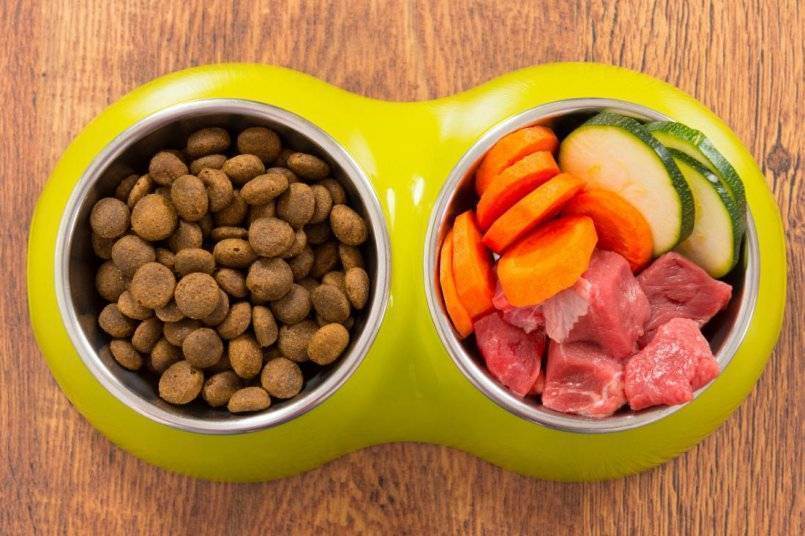
Some owners choose to feed their dog a mixed diet, which involves a combination of dry food with natural products.
When choosing this option, it is important to learn one rule once and for all: it is unacceptable to give the dog natural food and dog food at the same time. Between feeding different types of food there should be intervals of several hours. This is due to the fact that it takes 3-5 hours to digest food pellets, and no more than 2.5 hours to digest ordinary products. In addition, different enzymes are used to digest different types of food, and it will be difficult for the body to absorb both at the same time.
Simple rules
Whatever food the owner chooses for their pet, it is important to adhere to basic rules - by the way, they were formulated in 1985 by a professor of the National Veterinary School in Alfort (France) R. Voltaire:
- Provide your dog with plenty of fluids.
- Change to another type of food gradually (or pet food) gradually over one week.
- Feed your dog regularly.
- Control the amount of food eaten.
- Provide your pet with a balanced diet.
- Choose your dog food carefully.
- Rational use of food (do not combine with natural food in one go, do not feed food from the table, some ingredients are dangerous for the health of dogs).
- Adhere to food hygiene,
- Monitor the results of feeding.
- Contact your veterinarian for advice in a timely manner.
May your pets be healthy and cheerful!



